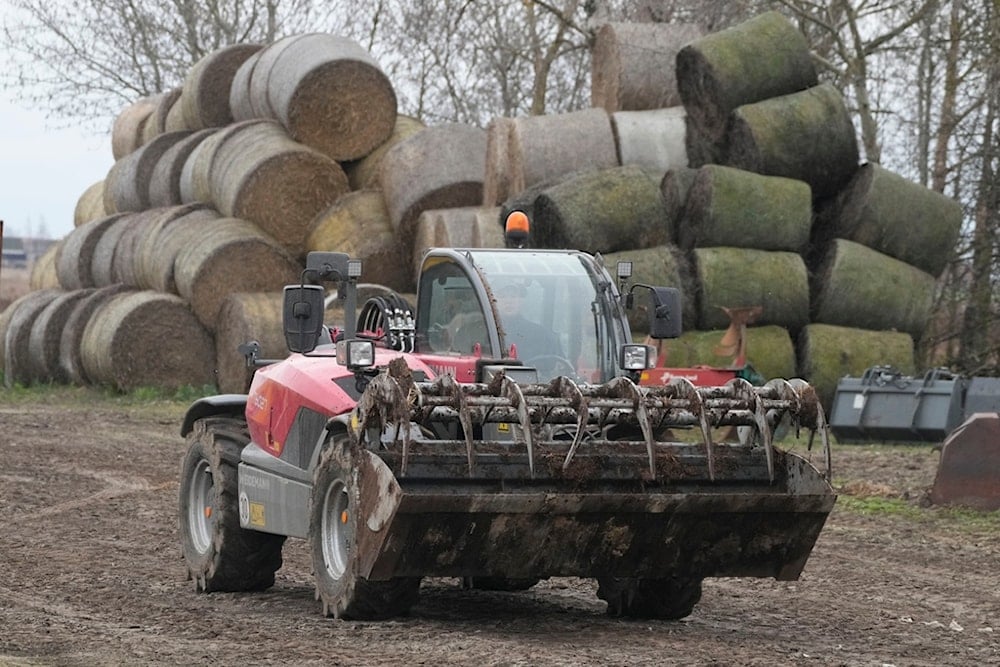EU farmers denounce US trade deal as agriculture left behind
EU farmers condemned the new US trade deal, saying it sacrifices agriculture by granting wider access to American products while leaving European wine and farm exports burdened with tariffs.
-

Piotr Korycki, a 34-year-old Polish farmer, drives farm equipment on his farm in Cywiny Wojskie, Poland, on Monday March 18, 2024. (AP)
The European Union's farming community has sharply denounced the recently concluded trade agreement with the United States, arguing it overwhelmingly favors Washington while sacrificing Europe's agricultural sector.
Copa and Cogeca, the EU's largest agricultural producers' association, warned Thursday that the arrangement grants broader access for American farm goods while imposing a 15% tariff on key EU exports, undermining an industry already struggling with rising costs and regulatory pressures.
"This deal grants improved market access for US agri-food products, while EU producers are left facing higher tariffs, now rising to 15%, on key export products. This one-sided outcome is not only unjustified – it is deeply damaging to a sector already under pressure from rising costs, regulatory constraints, and increasing global competition," the union declared.
The group called the agreement a "strategic error," stressing that European Commission President Ursula von der Leyen had failed to deliver on promises of tariff relief for agricultural goods. Expectations of reductions or exemptions on wine and spirits, central to EU export identity, were not met.
Cars win, wine loses
Details released this week confirmed that European carmakers will see tariffs in the US reduced from 27.5% to 15%, retroactive from August 1. Trade Commissioner Maroš Šefčovič hailed it as the "most favourable" trade deal the US has ever extended to a partner. Automakers welcomed the relief, but farmers were left empty-handed.
French wine exporters called the outcome "hugely disappointing," warning of major difficulties for producers already under strain. Bordeaux growers described it as "bad news" for exports to their largest market, while Italian vintners in Valpolicella projected hundreds of millions in potential losses.
French trade minister Laurent Saint-Martin pledged to press for "additional exemptions" in the next rounds of negotiations, but Brussels admitted that "unfortunately, here we didn't succeed."
Read more: Europe slams Trump trade deal as humiliating concession
Concessions to Washington
The EU's concessions go well beyond agriculture. In return for car tariff relief, Brussels agreed to significantly expand imports of US agricultural and seafood products including pork, dairy, nuts, fruits, and vegetables, sectors where EU farmers face tough competition. A handful of European exports, such as cork, aircraft parts, and generic pharmaceuticals, will see tariffs cut to "zero or close to zero" beginning September 1.
Beyond goods, the framework also commits Europe to increase purchases of US energy and support investment in American strategic industries, including advanced semiconductors and defense supply chains.
Critics argue this reflects an uneven trade balance that places EU agriculture on the front line of sacrifice for industrial and geopolitical gains.

 3 Min Read
3 Min Read










